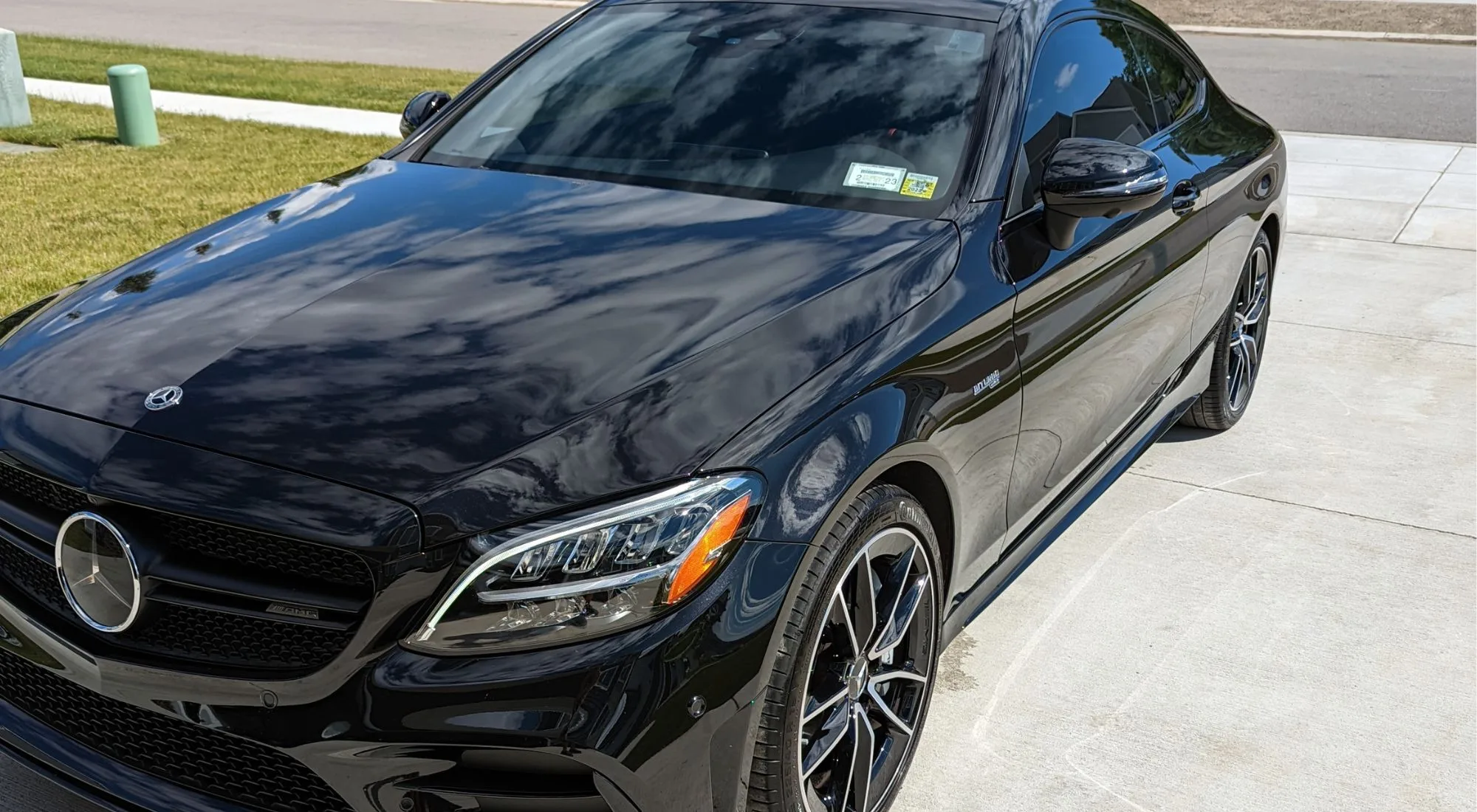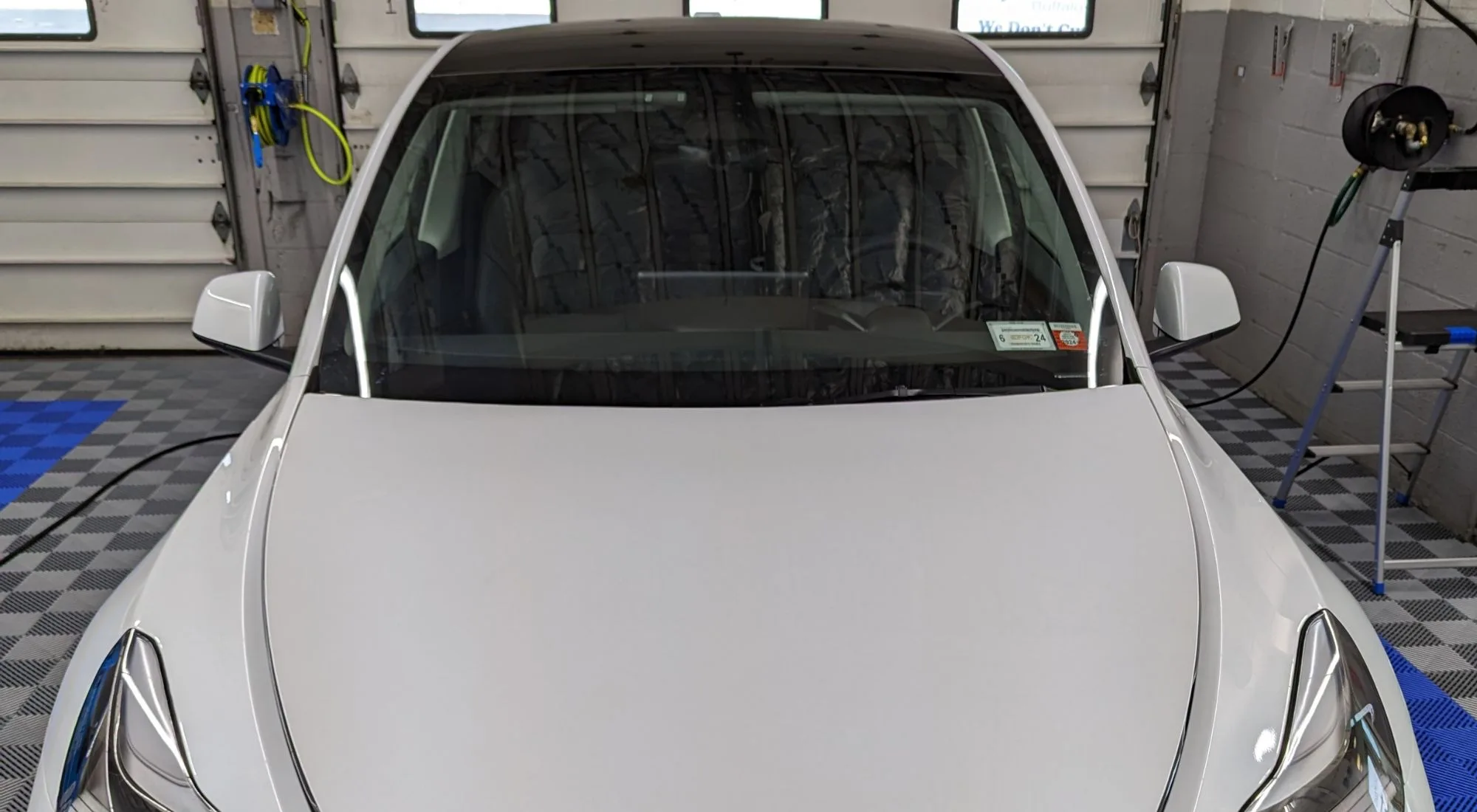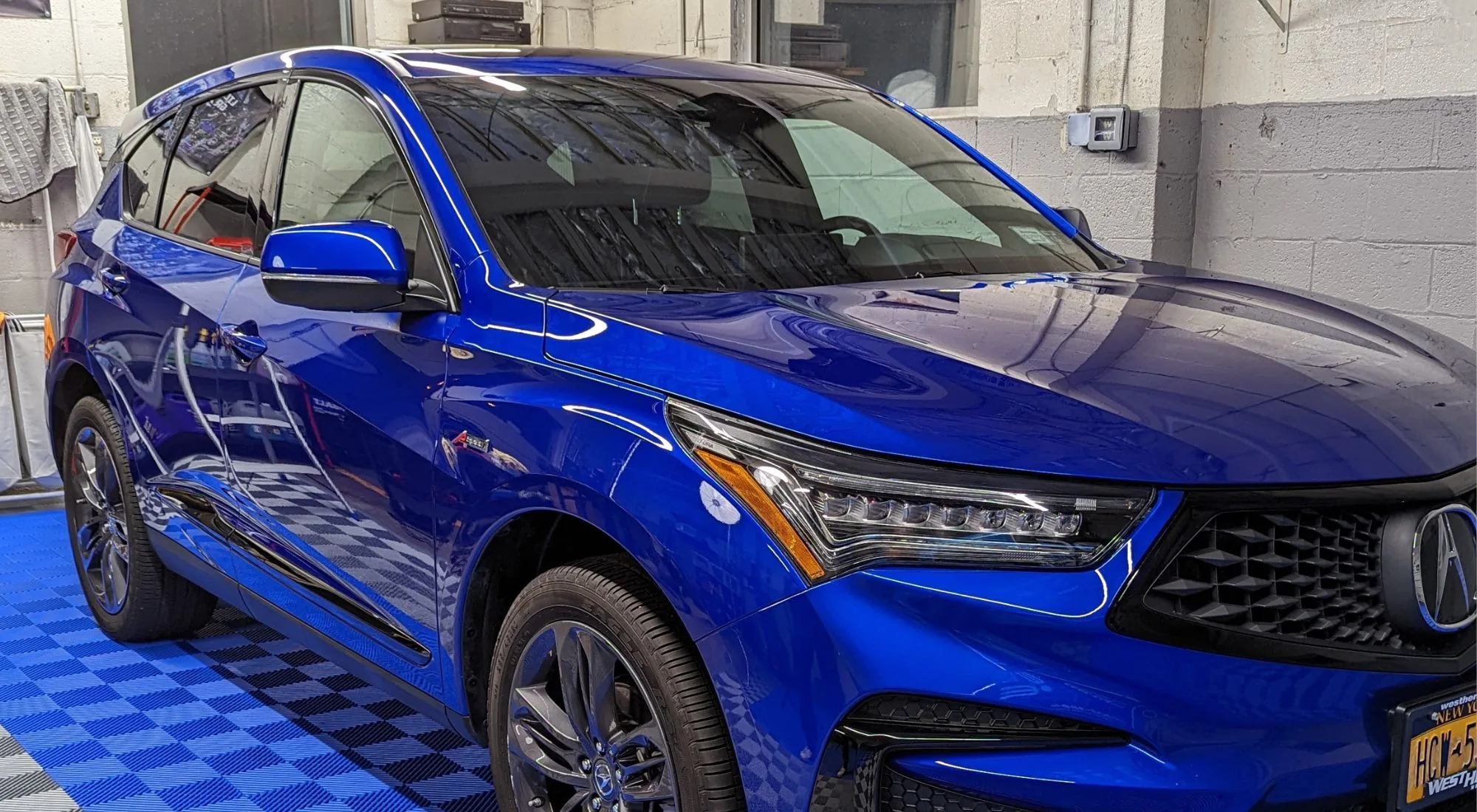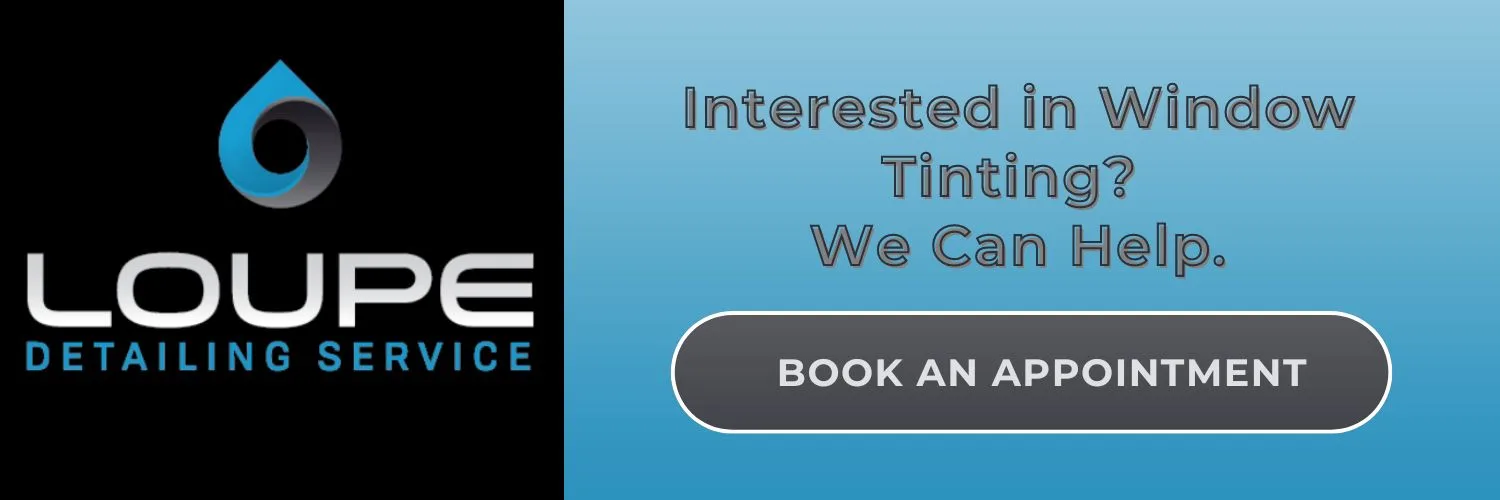New York State Law on Tinted Windows: What’s Legal and What’s Not?
Anxiety builds as your planned family road trip this summer nears. You think about the long distance you will go with direct sunlight scorching your kids in the backseat.
Seat belt burns, sunglasses that won’t stay on, and the uncomfortable heat all leads to the question, “Are we there yet?” every five minutes.
Stopping every two hours to apply sunscreen and being trapped in a car for the entire day is not your idea of a vacation.
You spent weeks childproofing your house, maybe it’s a good time to add the same level of protection and comfort to your car — but what is New York State’s law on tinted windows?
In this article, we’ll explore the rules, regulations, and exceptions to the window tint law in New York.
Is Window Tint Legal in New York?
The short answer — yes.
But the regulations for New York state law on tinted windows vary depending on the type of vehicle you own. These rules are designed to promote adequate visibility for drivers and maintain safety while balancing the need for privacy and protection from UV rays.
If you’re looking for professional window tint installation in Buffalo, NY, Loupe Detailing understands New York state tinted window law. Call us or visit our website today to schedule window tinting services for your vehicle.
New York Window Tint Laws
New York first enacted window tint laws for cars in 1991, but those laws were thoroughly amended in 2017.
So what are the tint laws in New York in 2024?
Stricter rules now apply regarding the percentage of light allowed through your car window tinting.
From 2024 onwards, the law stipulates that your vehicle’s front side windows and windshield must allow more than 70% of light in.
Overly dark tints may increase the risk of accidents due to visibility reduction, especially at night or in poor weather conditions. Dark tints can also obstruct the view of enforcement officers in a vehicle.
Enforcement officers have now issued a directive to ensure all cars adhere to the new window tint rules. Dark tints will also be targeted through window tint testing as part of the annual vehicle inspection.
If a law enforcement officer pulls you over, the penalty for illegal window tinting can be up to $150. Your vehicle may even fail its annual inspection due to unlawful window tinting.
Every state has its own regulations on the degree of opacity for window tinting aimed at promoting visibility for driving and law enforcement officers. New York is one of seven states that require 70% light transmission, including:
- Alaska
- California
- Delaware
- Iowa
- Pennsylvania
- Rhode Island
- District of Columbia

Window Tint Darkness in New York
The percent of visible light allowed through your vehicle windows is referred to as Visible Light Transmission (VLT).
In New York, the percentage of light allowed through your film and glass is extremely specific to your type of vehicle and the location of the window on the vehicle.
Tint darkness for sedan vehicles:
- Windshield: Must allow more than 70% of light in. (The top six inches of the windshield can be tinted to any darkness with a non-reflective tint.)
- Front Side Windows: Must allow more than 70% of light in.
- Back Side Windows: Must allow more than 70% of light in.
- Rear Window: Any darkness can be used if using dual exterior rearview mirrors.
Tint darkness for SUVs and vans:
- Windshield: Must allow more than 70% of light in. (The top six inches of the windshield can be tinted to any darkness with a non-reflective tint.)
- Front Side Windows: Must allow more than 70% of light in.
- Back Side Windows: Any darkness can be used.
- Rear Window: Any darkness can be used.

Window Tint Reflection in New York
Reflective window tint is a thin film applied to the surface of vehicle windows to reflect incoming solar radiation, reducing glare and heat.
Window tint law in New York permits a certain amount of window reflection percentage in addition to tint darkness.
Tint reflection for sedans:
- Front side windows: No mirrored or metallic appearance
- Back side windows: No mirrored or metallic appearance
Tint reflection for SUVs and vans:
- Front side windows: No mirrored or metallic appearance
- Back side windows: No mirrored or metallic appearance
The main reason why reflective window tint is considered illegal in New York is that it can easily and significantly blind other drivers. Any window with higher-than-normal reflection can cause blinding sun glare, making driving more dangerous for everyone on the road.
New York state law leaves very little for interpretation when it comes to tint reflectiveness. It’s vital to partner with a professional window tint installer to ensure you’re meeting New York state window tinting guidelines.
Loupe Detailing reflects quality service and highly skilled technicians who can ensure precision and attention to detail in every window tinting job.
New York Window Tint Law Rules and Regulations
Keep in mind that New York state law and regulations on tinted windows may be interpreted differently in your county or place of residence. Be sure to check with your local DMV to be certain of the rules you should be abiding before tinting your windows.
Consequences that may occur if you violate New York state tinted window law include:
- Base fine up to $150
- Repeated offenses: If you’re caught more than once, the fines can increase up to $500
- Cost of tint removal
- Impact on insurance premiums
- Points on driving record
- Negative impact on resale value
Side Mirrors
New York state tinted window law requires your vehicle to have dual side mirrors if the back side windows or rear window are tinted below 70% VLT. Some tints can obstruct your view and potentially cause an accident, so having dual side mirrors gives you another vantage point, keeping you and other drivers safe.
Restricted Colors
New York state does not explicitly ban any colors of window tint, so feel free to show off your style. Here are some of the most popular window tint colors available:
- Charcoal or gray
- Gold
- Blue
- Red
- Amber and Yellow
- Black

Certificates
In some states, companies that manufacture tinting film are required to certify the film they sell to ensure it’s authentic and legally compliant. However, manufacturers of film are not required to certify the film they sell in the state of New York.
Stickers
A sticker to identify legal tinting must be placed between the film and glass on each tinted window. This gives law enforcement an easy way to identify illegal tinting and allows for higher penalties for offenders who fraudulently produce their own stickers.
Vehicle Inspections
All vehicles registered in New York state must get a safety inspection at a DMV-licensed inspection station:
- Every 12 months
- When the ownership of the vehicle is transferred
Window tint testing is required during annual motor inspections to ensure your tint aligns with New York state’s most updated window tinting laws.
Vehicle inspectors will use light transmittance meters to test each tinted window of your vehicle.
If tints are illegal, your vehicle will fail and you’ll have to address the issue before the expiration date of your inspection.
If your vehicle fails inspection you:
- Cannot renew the registration.
- Can receive a parking ticket.
- Can receive a fine. If there’s no inspection sticker, the fine is between $50 and $100. A mandatory state surcharge of $88 ($93 in town and village courts) is added to the fine.
Exceptions to New York Window Tint Laws
Medical Exceptions
New York state tinted window law allows medical exemptions for special tint. If you have one of these medical conditions you may request an exemption from the law using the Application for Tinted Window Exemption (MV-80W):
- Albinism
- Chronic actinic dermatitis/actinic reticuloid
- Dermatomyositis
- Lupus erythematosus
- Porphyria
- Xeroderma pigmentosum
- Photophobia associated with an ophthalmic or neurological disorder
- Highly severe drug photosensitivity
- Other conditions causing severe photosensitivity that require window sun-screening for medical reasons
Vehicles With Exceptions
New York state’s law on tinted windows comes with some exceptions. Due to their unique purposes, these types of vehicles do not need to follow New York’s tint law regulations:
- Ambulance
- Hearse
- Bus
- Church-owned vehicle
- Limousine
Benefits of Window Tinting
Sleek and sophisticated — window tinting offers a harmonious balance of style and functionality to your ride. Tinting your car windows can provide several benefits including:
- Enhanced security: Deterring thieves and break-ins by making your vehicle’s valuables less visible.
- Personal privacy: Blocking the view of passersby while inside the car is particularly beneficial if you frequently drive clients, transport valuables, or want to ensure your conversations and activities remain private.
- UV protection: Blocking the sun’s harmful UVA rays that accelerate skin aging, create ocular damage, and cause skin cancer.
- Heat reduction: With the heat from the sun’s UV rays blocked, your vehicle’s interior stays cooler, reducing the need to use your air conditioner.
- Health protection: Some medical conditions may require additional sun protection while driving. Adults and children with sun sensitivities can benefit from the added layer of protection from sun exposure.
- Aesthetic appeal: Enhancing the appearance of your vehicle, tinting provides the shaded, mysterious look that just looks cool.
- Shattered glass protection: Tinting can strengthen and protect your windows from shattering in the event of an accident. The film coating keeps the glass partially secured in place, even after it’s broken.
- Enhanced visibility: Shielding your eyes from the glare of oncoming car headlights, lampposts, or the sun can reduce your risk of an accident.
- Interior fading damage: By shading the sun’s harsh rays, tinting can protect your interior dash from cracking and warping.
- Improved gas mileage: By blocking the sun and keeping cool air in, window tints can minimize your air conditioner usage while stretching your gas mileage.
- Environment-friendly: Research indicates that car window film implementation will lower energy consumption and reduce vehicle-sourced emissions.
Loupe Detailing: Providing Window Tint Services That Meet New York Window Tint Law Requirements
Navigating the world of window tint darkness regulations in New York might seem complex — but Loupe Detailing makes it simple.
With our expertise, complete transparency, and first-class customer service, we spare no expense to make sure every detailing job is met with perfection. We are proud to offer the following services:
- Mobile interior and exterior car detailing
- Windshield repair services
- Paintless dent repair
- Wheel repair
- Ceramic coating
- Paint protection film installation
- Window tint installation and removal
If you are looking for professionals well-rehearsed in New York state tinted window law, call Loupe Detailing today to schedule an appointment. We’re confident you’ll be satisfied with the results.
